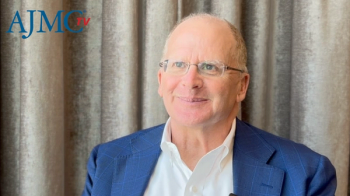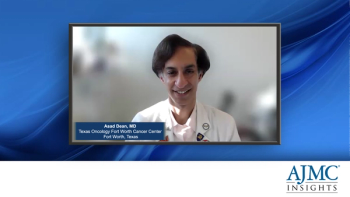
Vaccine For Children Program
The Vaccine for Children program is highlighted.
Adam C. Welch, PharmD, MBA, FAPhA: I want to get into the Vaccines for Children [VFC] program. So Dr Chen, let’s start by providing an overview of what VFC is.
Kimberly C. Chen, DO, MSHLM: So VFC is a federally funded program to make sure vaccination is at no cost for children who otherwise would not get vaccinated because [of] their inability to pay. VFC is a terrific program that provides a consistent nationwide vaccination coverage pathway for any children younger than 19 years. And they are for individuals who had no ability to pay, Medicaid-eligible [patients], uninsured or underinsured [patients] in programs such as federally qualified health centers, or Native American [and] Alaska Native children.
Adam C. Welch, PharmD, MBA, FAPhA: The VFC is a program based on the Advisory Committee on Immunization Practices [ACIP] recommendations. They’re using ACIP recommendations for the vaccines within that program, correct?
Kimberly C. Chen, DO, MSHLM: Absolutely. And ACIP, it’s a committee that’s within the CDC, [Centers for] Disease Control and Prevention, and they develop the recommendation on how to best use [the] vaccine to control disease for adults’ and children’s health. And their recommendations are covered by the VFC. So once ACIP issues a VFC resolution, then [the] CDC goes to negotiate a contract to purchase those vaccines at [a] much lower price with the manufacturer. Then they are funded by congressional appropriation by the CDC, and then the vaccines get distributed through their guarantee. They usually are [through] the health department, the public health agencies, and then they get delivered to, at no cost, the VFC providers, and that could be physician clinic [or] at-risk area. So it’s a very important agency that provides vaccinations to patients who have otherwise no ways to get their vaccine.
Adam C. Welch, PharmD, MBA, FAPhA: And this is different than Medicaid programs that can also provide coverage [for] vaccines.
Kimberly C. Chen, DO, MSHLM: Yes. The VFC has a very clear pathway, essentially ACIP approved. We come in there, and VFC is able to provide and get those low-cost vaccines to everyone who needs them. Whereas on Medicaid, it was dependent on state regulation, [and] many Medicaid organizations are managed by managed care. So the rules are going to be different [from what] they used to be…vs this direct contracting by [the] CDC to make sure the lowest-cost vaccine is [in the] right hands.
Adam C. Welch, PharmD, MBA, FAPhA: So what has ACIP said so far in the RSV [respiratory syncytial virus] space for infants? So we’re looking at monoclonal antibodies. We’re also looking at vaccines. What do we know so far from ACIP, knowing that it isn’t a vastly and rapidly evolving area?
Kimberly C. Chen, DO, MSHLM: So ACIP has come out and said for all adults, they can receive that vaccine as well. They have a consensus between the patient and their physicians. But for young children and pregnant woman, they still are not sure yet because they are not sure how to interpret the monoclonal antibody. Is that a vaccine or is that a treatment? If it’s a treatment, they may fall under the medication route and you will not be approved under the vaccine program.
Adam C. Welch, PharmD, MBA, FAPhA: That’s a fork in the road when ACIP has historically looked at prevention through vaccines and vaccination. But now we’re looking at an option that is, is it a treatment? It’s an antibody. It’s still passive immunity, but it’ll be interesting to see how ACIP evaluates these options that are available to protect infants and young children. So thank you for that information. What would be the impact if RSV monoclonal antibodies were part of the VFC program, for example?
Kimberly C. Chen, DO, MSHLM: The VFC pathway has such a clear advantage over the Medicaid program as we talked about. The VFC program has been known to [reduce] and [remove] costs per year for a disparity, especially in vaccination rate across different households and differentiated by race, ethnicities, and income. Without this program, many individuals are not going to be able to get vaccinations. So it’s very important for us all to continue to advocate for the inclusion of the monoclonal antibody into this VFC program.
Adam C. Welch, PharmD, MBA, FAPhA: It sounds like the ACIP recommendation goes beyond that, because it [affects] the VFC and all these monitoring programs and programs to provide access. So it’s more widespread than simply CDC having an opinion on how to use these monoclonal antibodies. It goes beyond that. So if the monoclonal antibodies were not included in the VFC programs, would Medicaid pick up that coverage or what would need to happen? What would need to align for infants who are at risk to receive this treatment?
Kimberly C. Chen, DO, MSHLM: It gets more complicated. It goes to the federal Medicaid drug rebate program, and it’s going to depend on each state [with] their negotiation. And some states have managed care that administers the Medicaid program, and [it] depends on those different payers, the [acquisition] policies. So there are going to be a lot of inconsistencies for those patients at risk who do not have the money to pay for the preventive treatment. So it is much more complicated, more inconsistent from state to state if it is under Medicaid.
Adam C. Welch, PharmD, MBA, FAPhA: Inconsistency sounds like lower-quality care in some cases. So that’s not necessarily a good thing if we have a more inconsistent approach to the coverage of these treatments and prevention options for RSV.
Transcript edited for clarity.
Newsletter
Stay ahead of policy, cost, and value—subscribe to AJMC for expert insights at the intersection of clinical care and health economics.

















































